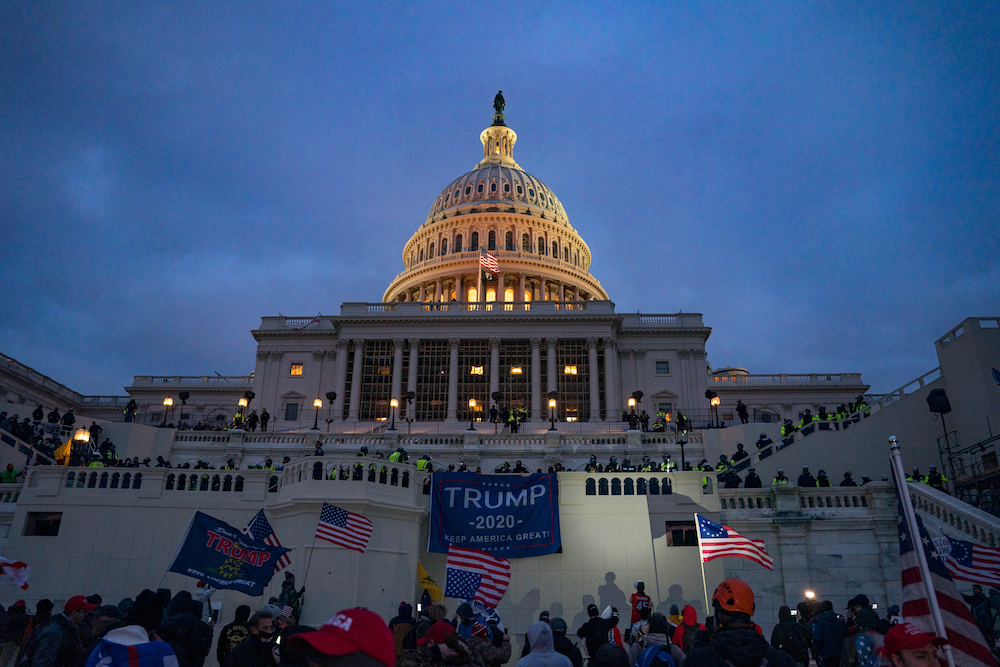Politics
D.C. Appeals Court Denies Key Jan 6 Defense, Setting Up SCOTUS Showdown

The D.C. Circuit Court of Appeals has rejected a defense claim used by a January 6 defendant, setting up a likely Supreme Court appeal that could have major implications on a common charge the Biden Department of Justice has used on more than 2,000 protesters. The Biden DOJ has vowed to lock up more than 2,000 protesters — most of whom are charged with common trespassing misdemeanors — by January 2026. The department has continued to make arrests — generally causing defendants to lose their livelihoods over common trespassing misdemeanors — nearly four years after the minor disturbance while refusing to charge left-wing protesters with the same offenses.
The court decided whether Couy Griffin could argue that he was unaware of “knowingly” breaching a Secret-Service-protected permitter, according to a report from Newsmax. Griffin further argued that the government did not conclusively prove that Griffin was aware of the restrictions at the time of the mass trespassing event.
(VOTE: Should JD Vance Run For President In 2028?)
In a 2-1 ruling, Judges Cornelia Pillard and Judith Rogers determined that the trespassing law was established to increase security around Secret Service protectees. At the time of the mass trespassing event, Vice President Mike Pence was inside the Capitol Building to preside over electoral certification.
The court ruled that requiring DOJ prosecutors to prove that trespassers were aware of the Secret Service protectee’s location would “impair the Secret Service’s ability to protect its charges.”
“The government was not required to prove that Griffin was aware that the Vice President’s presence was the reason the grounds remained restricted,” Pillard wrote. “A person trespassing on grounds he knows are restricted, where he knows he lacks permission to be, may be convicted of a federal misdemeanor trespass — even if he does not know that a Secret Service protectee is within.”
Griffin argued that the law was so broad in scope that it could be used to punish anyone who accidentally crossed through a Secret Service protection zone. The judges ultimately ruled that the law was aimed at “a small subset of trespassing offenses that implicate both the personal security of the most high-profile federal officials — and also, necessarily, the national security of the United States.”
The lone dissent issued by Judge Gregory Katsas will increase the likelihood of the U.S. Supreme Court deciding to rule on the matter in the near future. The Supreme Court has already slapped down two novel legal theories used by Biden DOJ prosecutors to charge non-violent January 6 trespassers with felonies.
(BREAKING: Gold’s Bull Market Is Just Getting Started. Don’t Get Left Out)

